Frequently Asked Questions
Below are some of the most commonly asked dental care questions.
Some of the benefits can include:
- Early Detection – can prevent tooth related issues including decay and gum disease.
- Lighter on wallet – attending the dentist regularly can be comparatively inexpensive.
- Maintaining oral health – we offer comprehensive oral examinations to keep your teeth healthy.
To maintain your oral health, it is recommended that you visit the dentist every 6 months. This can help us to keep an eye on any issues that could potentially occur i.e. gum disease and tooth decay.
New types of fillings are always emerging meaning that there are a number of different options available to patients today. Some are extremely popular while others are rarer and some have become controversial.
- Dental fillings can be made out of special glass particles but is a less common option. It is not available at all surgeries and clinics and will only be recommended based on a whole host of factors
- Gold cast filings usually last a long time if properly cared for. The material doesn’t corrode and offers durability and strength as well as the ability to withstand pressure from chewing. The colour is very visible though.
- Silver amalgam can last just as long as a gold one if taken care of. It offers the same amount of durability at a much lower cost. Again they are very visible and some patients may be allergic to the alloys used
- Tooth coloured composites offer a natural aesthetic and are great for those looking to conceal the fact that they have a filling. These are bonded to the tooth itself and provide an enhanced level of support and strength.
- Glass ionomer fillings contain acrylic and a specific glass compound. They are usually reserved for repairing cavities below the gum line or dental problems in children. These do need to be replaced after five or so years.
Your dentist is the most likely to find cavities during a regular dental check-up. They will probe your teeth to find any soft spots or use x-rays to check between your teeth.
If you have had a cavity for a while then you may get a toothache, particularly after you eat or drink something sweet, hot or cold. Sometimes it is possible to see the pits or holes in your teeth. Other symptoms of tooth decay include:
- Holes where the food gets stuck
- Chipped-off areas what your tongue often goes into
- Dark spots on the teeth
If left untreated, tooth decay may result in pain that lasts for several hours.
Unfortunately fillings don’t last forever, in fact it is even possible for them to fall out. The average duration of a filling is about 3 – 7 years though you will need to go for regular dental exams to make sure that it is still holding up. If you notice any discolouration, chipping or darkening beneath the filling, then it is time to make an appointment with your dentist. These are all signs that the filling needs to be replaced due to more extensive tooth decay beneath the filling itself.
A temporary crown is usually what is fitted onto your tooth while you wait for your permanent crown to be created in a dental laboratory. This creation can take several days, so the dentist will fit their patient with a temporary crown in their office to fill the gap while the permanent crown is being created. Temporary crowns are usually made from acrylic or stainless steel and should be cared for by avoiding sticky and chewy foods as well as refraining from chewing on that side of your mouth until your permanent crown is fitted.
Dental crowns are usually made out of a number of materials. Gold alloys, nickel and chromium are just a few of the more popular metals but not all that are used to create crowns. Porcelain is a commonly used material because it has the ability to be matched to the colour of the natural tooth while also providing an alternative to metal. Porcelain fused to metal is another popular crown material.
We offer nervous patients the option to have Happy Gas. It’s our secret to keeping you smiling even after treatment. Read more about it here.
From 0-2 years old: they shouldn’t use any toothpaste as their baby teeth are still breaking in.
From 2-7 years old: a pea-size amount of fluoride toothpaste, brushing twice daily. We recommend that they don’t rinse their mouth out but rather just spit. Kids should be monitored by their parents and taught the importance of brushing for at least 2-3 minutes twice a day.
We suggest bringing in your child to see us at around 1 years old. This is because their teeth will start to show through from around 6 months old and we’d like to advise you on oral hygiene to prevent any possible dental problems. Bringing your child in at this age allows us to all get to know each better and discuss the best ways for the whole family to practice good quality cleaning.
No, there is research to prove that both are equally as effective if used constantly and correctly. Have a chat to a member of our Starbright Dental team on your concerns and they will be able to advise you on which would work for your needs.
This is dependent on the issue. At Starbright Dental, we can use both and our dentists will advise you on which is best suited to you.
Fluoride is the most vital ingredient in any toothpaste. It is a mineral that is found naturally and prevents tooth decay and cavity creation. Fluoride protects your teeth from acid-forming sugars and foods that bacteria feeds on. This amazing mineral firstly makes your tooth’s enamel stronger and secondly, it can reverse potential acid damage by hardening those areas of your tooth sunstone that may have already started to decay. Therefore, it doesn’t matter which type of toothpaste you are using, as long as it contains fluoride, it will be effective.
Wisdom teeth presentation can vary from person to person. There are times where they emerge as fully functioning teeth that cause no problem. In these cases, surgery is not necessary. However, when wisdom teeth are impacted, meaning that they don’t emerge fully or grow sideways, they can create discomfort and infection. This is when they become problematic and need to be removed.
These are wisdom teeth that don’t fully erupt from the gum tissue and may grow sideways or in a way that compromises adjacent teeth. They cause pressure on your other molars and can create infection, discomfort and swelling. These impacted wisdom teeth are the ones that need to be removed sooner rather than later. Using x-rays, our dentists will determine if wisdom teeth extraction is necessary. It is a good idea to maintain regular checks with your dentist.
It is common to experience some discomfort after your wisdom teeth extraction, along with swelling and bruising of the face, and mild bleeding from the area.
Here at Starbright Dental, we explain all post-operative care instructions after your procedure. It is extremely important to take care of your teeth and gums and this can be achieved by following our guidelines. There is potential for complications to occur after surgery, so it is important to notify your dentist if you notice anything unusual.
Persistent bad breath can result from issues like tartar and calculus buildup. Regular dental visits and a thorough at-home cleaning routine, including brushing your tongue, can prevent bad breath.
Placing a dental crown usually requires two visits to the dentist but some clinics can create and place them on the same day. To prepare for a crown placement, your dentist will numb the area around the tooth so that they can shape the tooth surfaces in order to accommodate the new crown. Extremely damaged teeth may need special techniques to build them up so that they can hold a crown securely. We then take a digital scan to ensure that the crown fits properly and also that the colour is perfectly matched. Once the laboratory has finished the crown, the dentist will cement it into place over the existing tooth where it will be evaluated and adjusted as needed.
Here at Starbright Dental, we keep our prices reasonable and offer alternate payment options for patient convenience. Before proceeding with any dental treatment, we provide all patients with the treatment cost. We have HICAPS facilities for immediate health fund claims and are a preferred provider for HCF. Just bring along your health insurance card to each of your appointments.
We accept all cards and cash payments, as well as AfterPay and ZipPay. Oral Health Service vouchers, Child Dental Benefits Scheme (CDBS), and Veteran Affairs (DVA) patients are also welcome. For further information about our payment options, visit our payment options page, or please contact our friendly team.
Do you have a question not answered here?
Get in touch!

